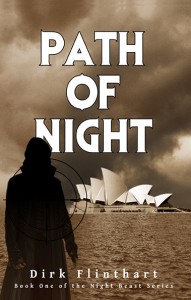If the person you loved tried to kill herself, would you want to know why? When Atsumi’s (Haruka Ayase) suicide attempt leaves her comatose, her lover, Koichi (Takeru Sato), is eager to reach out to her. There is a medical procedure that can help him. With new technology, Koichi can communicate with Atsumi through ‘sensing’, a process that will allow him to enter her mind and speak to her directly.
He is unprepared for what he finds, however. In her mind, Atsumi is obsessed with her work as a horror-themed Manga artist and the world outside of their apartment building is smothered in fog. Worse than that, the things from Atsumi’s drawings are making terrifying appearances in her mind. And, when Koichi finishes his ‘sensing’ experience, some of the apparitions continue to haunt him.
If he and Atsumi have any hope of waking her, they will have to delve into the fog of her subconscious and confront the horrors that lurk there.
Real is a conglomeration of many genres, but at its heart it is a story about two people who love each other against monumental difficulties and who will do whatever it takes to protect one another. Despite this, the romance is not over-done. Koichi and Atsumi have been together long enough that their relationship doesn’t have the giddy excitement of new love. Their bond is more sedate, but all the stronger for it as they can rely on one another.
With the two lead characters carrying most of the story, the film’s atmosphere almost becomes a third entity. At times the scenes in Atsumi’s mind are beautiful, the screen rippling as Koichi’s consciousness merges to hers. The illustrations that Atsumi is so desperate to finish are gorgeous as well, also serving to carry the story along and unlock secrets that have long been repressed. In other instances, though, Atsumi’s mind is a horrific place to be, with brutally slain bodies appearing. The bodies too, carry the story; particularly the apparition of a little boy who refuses to go away.
While Real explores a fascinating premise, it moves quite slowly. At first it seems that Atsumi’s depression over work is the problem, but the truth is psychologically deeper than that, and it takes time to reach the real issue. The film would have been stronger if it had stream-lined some of the plot-points.
Ultimately though, Real is an enchanting look at the strength of the bond between people who love each other. Haruka Ayase and Takeru Sato do a suburb job of portraying two people who are trying to reach a new understanding of each other since the old one has failed.





































